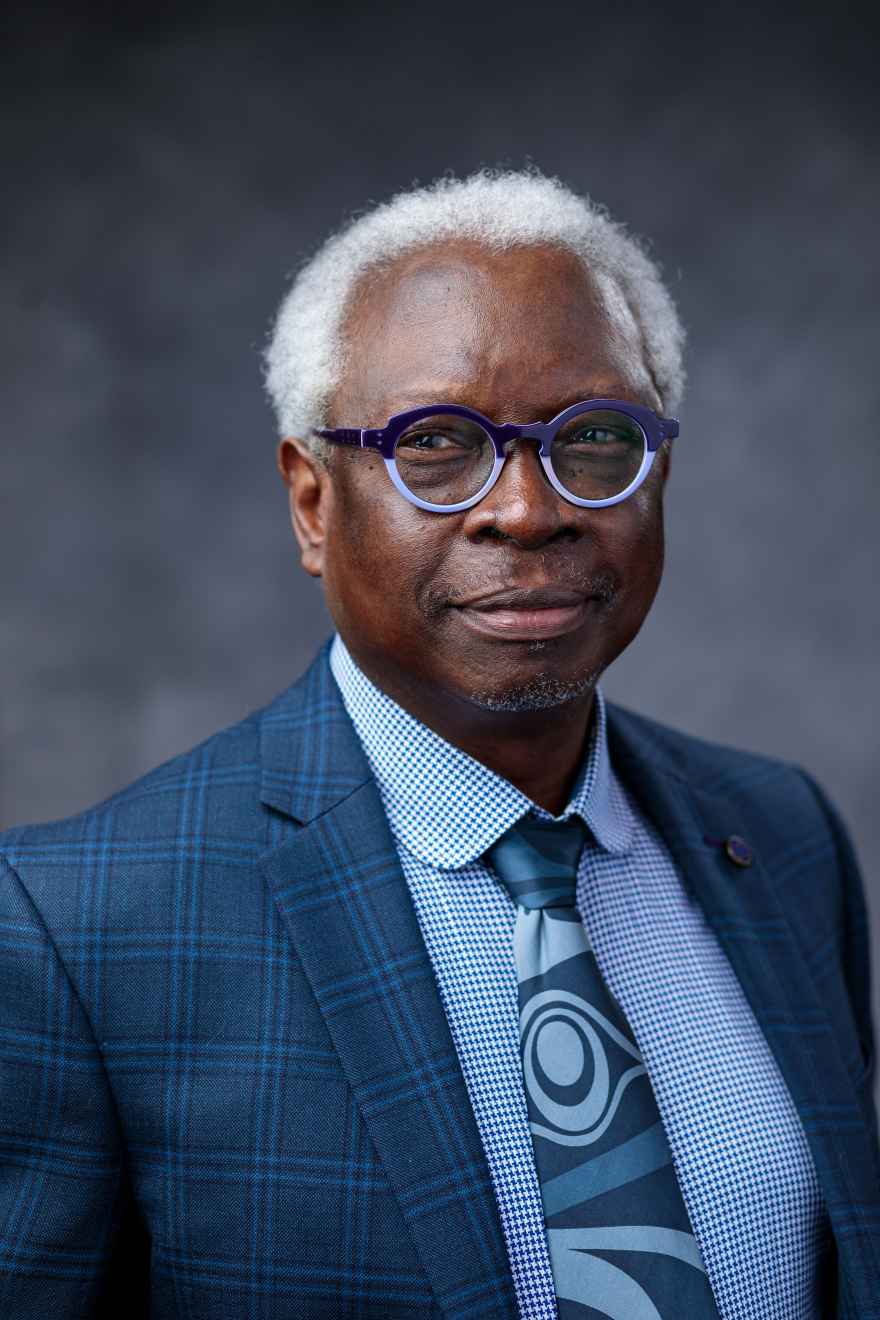Humanities Scholar Elected to the American Academy of Arts and Sciences

By Sara Patterson
Acclaimed University of Chicago linguist Salikoko S. Mufwene has been elected to the American Academy of Arts and Sciences, founded in 1780 to honor excellence in independent research.
Mufwene is among 269 new members, which includes four other UChicago faculty, honored this year from a range of academic disciplines and selected from more than 1,300 nominations.
The Edward Carson Waller Distinguished Service Professor in the Department of Linguistics and the College, Mufwene is a leading expert on the emergence of creoles and on globalization and language. He received this honor for his breakthrough research in the evolution of language.
His current research centers on evolutionary linguistics, which he approaches from an ecological perspective. Mufwene focuses on the phylogenetic emergence of language and how languages have been affected by colonization and worldwide globalization, particularly through the indigenization and speciation of European languages in the colonies.
Among his many honors, Mufwene was elected to the American Philosophical Society in 2022 and was also elected fellow of the Linguistic Society of America in 2018 and the Institute for Advanced Study in Lyon (2010‒11) and was awarded a “médaille” du Collège de France in 2003. He has been offered a “Chaire Mondes Francophones” for the 2023-24 academic year at the Collège de France.
His first and seminal book, The Ecology of Language Evolution, has been translated in Mandarin. He is the founding editor since 2001 of the book series Cambridge Approaches to Language Contact. One of his latest publications is the two-volume Cambridge Handbook of Language Contact (June 2022), the first of which is devoted to the role of population movement and contact as actuators language change.
In this edited question and answer, Mufwene discusses how the emergence of creole and pidgin languages parallels other cases of language evolution, including , language endangerment and loss, and the actuating role of the socioeconomic ecology on the histories of languages.
Last year you were elected to the American Philosophical Society and now you have been elected to the Academy of Arts and Sciences, which is great recognition for your work. How does this honor from the Academy of Arts and Sciences compare to other awards?
Like the American Philosophical Society, the American Academy of Arts and Sciences is a very prestigious scholarly society. I'm humbled by the recognition and feel gratified that my scholarship is taken seriously even by scholars outside linguistics. It's been tough debunking various deeply entrenched myths about the emergence of creoles and pidgins from what I characterize as an ecological perspective.
I'm especially happy the approach has been adopted by several linguists working on language change and language speciation, as well as by other scholars working on cultural evolution. My focus has been on the actuation question: why specific changes occur just at some specific times and settings? I have invoked population movements and contacts, as well as the ensuing population structures as critical factors accounting for differential language evolution.
What do you think makes your work on the emergence of creoles and globalization and language so relevant now?
I am a uniformitarianist—seeing parallels between changes that happened in the distant past, such as in the case of indigenization of Vulgar Latin and its speciation into the Romance languages, and some that have happened recently. I have argued that the emergence of creoles and pidgins is not exceptional compared to other cases of language evolution. To account for their emergence adequately from an ecological perspective helps us zero in on the actuation question and revisit earlier cases of language evolution traditionally considered more natural or more normal.
It's striking how much relevant information has not been provided about those older cases. Many topics in historical and genealogical linguistics need revisiting; and there is room for alternative interpretations. The study of the emergence of creoles must be grounded in how global economic pressures triggered population movements and contacts. These have often engendered new population structures, which, in the case of creoles and pidgins, influenced the appropriation of nonstandard varieties of European languages in plantation settlement colonies and in trade colonies from especially the 16th- to the early 19th-centuries.
They also help us better understand one of the preoccupations in linguistics today: language shift and one of its consequences—language endangerment and loss. My study of globalization in its diverse interpretations has led me to the conclusion that while the world has become increasingly interconnected, this interconnection has not been uniform and disparities as well as inequities in economic development have not disappeared. Nor is the English language likely to prevail everywhere. In fact, language endangerment and loss have not proceeded uniformly around the world.
Could you tell me more about your research in evolutionary linguistics from an ecological perspective? How is it advancing? Why is it so important?
The big challenge has been penetrating the black box of diverse factors that the concept of "ecology of language" subsumes. My interest in the phylogenetic emergence of language has helped me try to figure out the role of the human anatomy and mind as ecological factors in driving diverse aspects of the emergence of language in mankind. Ecology in this research area is not quite the same as various indirect ecological factors that have influenced language change and speciation in historical times.